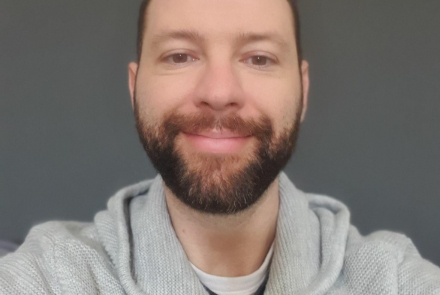
From teaching to learning: A climate change graduate’s story
Paul McGhie knows the inside of a classroom well, so when it came time to change his career, he decided it was time to learn from teachers with experience at the highest levels of science, policy and advocacy.
Paul had been teaching for eight years at a small college but decided he needed to follow his other passion, the environment. He had a lot going on in his life, at the time married with one child and another on the way, a house under construction and the looming, and yet unknown, disruption of COVID-19.
Despite all of this and working in Sydney, he needed a course that would be entirely online, and a low commitment, just in case it was too much. He took the leap, first testing the waters with a Graduate Certificate in Environmental Management and “once I felt settled there it was easy to convert those four subjects into credit for a Master of Climate Change.”
He says that it’s a topic that’s always interested him because it’s “so frustratingly simple in some ways and endlessly complicated in others. The scientific side might be straightforward but there are so many other layers to it; cultural, political, ethical and economic.”
Learning from the best, was a key incentive at Crawford saying that teachers and admin staff are all here because they believe in their subjects and that shows in everything they do. “They were willing to go above their obligations to connect with students and make a difference. Having voices in the classroom with experience at the highest levels of science, policy and advocacy was a huge privilege”
Local climate policy was at the forefront of Paul’s studies during the 2022 Federal election. He says it highlighted social theory suggests that environmental arguments need to be more than academic theories. “Arguments are more powerful when they’re connected to immediate, tangible issues, and the emergence of local voices prioritising climate change seemed to support that idea,” he said.
His advice to prospective students is to “take as many different subjects in different areas as you can. Understanding the systemic nature of the climate change problem is generally more helpful than over-specialising and advocating for just one part of the puzzle.”
“The next generation matters, building things is incredibly rewarding, and people are genuinely capable of making big changes when it counts.”
As for Paul’s next steps? He’s now started in a graduate position as an environmental and sustainability advisor in a construction company, where he hopes to have an impact in Australian infrastructure.
From all of us here at Crawford, Congratulations Paul!
Updated: 27 July 2024/Responsible Officer: Crawford Engagement/Page Contact: CAP Web Team











